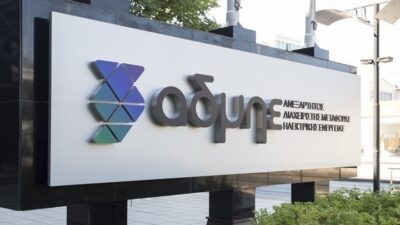Dionysis Chionis: 2020 was the same as 2010 – For 2021 and 2022 look at 2011 and 2012
28/01/2021
Eleven years have passed since the formal imposition of the memoranda and it seems that a new crisis is emerging with many similarities to the previous one. As then, so now a crisis precedes the age of carelessness. In other words, the certainty that the problem is limited and in the end Europe “… cannot let Greece go bankrupt”.
In 2010 and 2020 the external debt and its servicing is the predominant problem but no one cares. Debt restructuring was vigorously ruled out throughout 2010 and 2011. It is worth noting that even on the eve of the restructuring (February 2012), those in charge spelled out the restructuring, which concerned only underdeveloped countries. For the supporters of the restructuring, heavy accusations have been made that I do not want to repeat.
In the spring of 2020 a pandemic broke out and caused the occasional crisis. At the beginning, we tried to convince ourselves and each other that this is a temporary phenomenon and that soon the Greek economy will re-launch. We are slowly realizing that the occasional crisis tends to turn into a crisis of a decade, leaving indelible marks on the Greek economy.
As then, so now there is one thing in common: the inability to realize the problem. As then, so today we rely on promises of a speedy return to markets and investment rivers which in 2011, proved to be empty. As then, so now we rely on over-optimistic forecasts.
This was followed in 2011 where the climate of optimism of the first months gave way to reflection. Instead of a return to the markets, the problem is growing and in mid-2011 we, both lenders and Greece, realized that a mild restructuring (July 2011, Schauble plan) and a mild fiscal adjustment are not enough.
A hard landing in 2021, after 2020
For 2021, the payment of 10.769 billion euros is required, which is necessary for the payment of interest arrears. To this must be added the amount that will result from the budget deficit. As then in 2011 so in 2021 there is no discussion about the wants of the state and how to meet our obligations.
2012 was the beginning of the era of awareness. We now realize that the problem is not solved by exorcisms and reforms and the era of a hard landing follows. But we are too late and the problem is growing. The help from the west did not show and instead of help, loans arose, even on unbearable terms.
The funny thing was that many tried to name these loans as charity and solidarity. It took ten whole years for President Obama to admit in his memoirs that the PSI was solely about rescuing European banks.
2022, as well as 2012, seems to be a very difficult year and perhaps the most painful in terms of debt. 16.84 billion euros will have to be found from the markets for the payment of interest alone and 8.87 billion euros for the payment of arrears. According to the Public Debt Management Agency, the total amount is 24.49 billion euros, or about 15% of GDP.
New memorandum
To the above must be added the amount of the budget deficit. Thus, a new memorandum begins to appear on the horizon again. In 2012, no one believed that we were entering a decade-long crisis. The communication management of the crisis had silenced or isolated any different voice. According to the climate of that time, the main problems of the Greek economy were the reforms in the universities and the digitization of the procedures.
The budget deficit and debt service are minor issues. The sequel is known. After 2012 the era of false expectations and the fated acceptance of mistakes followed. Today, as then, there is the concept of debt forgiveness and solidarity.
Debt relief is the main counter-argument to these fiscal considerations. It should be recalled that in 1997 Boris Yeltsin was forced to accept the service of debts owed by Tsar Nicholas in 1905, and renounced by the Bolshevik government in 1918. As then, so now a major mistake was made: the fact that debts are never written off! Debts are either repaid, or exchanged for national concessions.





